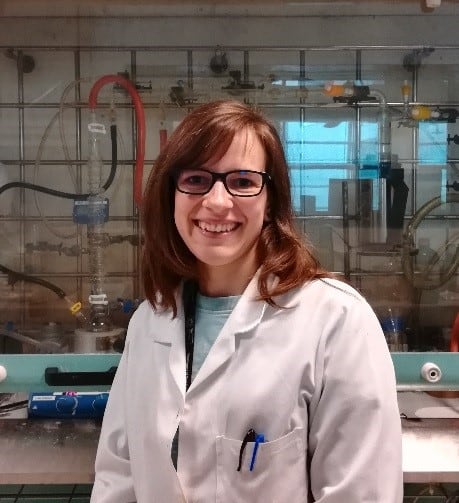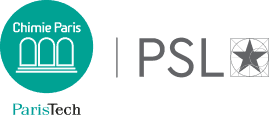Marie Sklodowska Curie Fellowships : Marta Martinez Alonso will join Gilles Gasser’s team at Chimie ParisTech

Marie Sklodowska Curie Fellowships are famously very competitive. Interview with Marta Martinez Alonso, the Fellow and Gilles Gasser who will host her from begining2020.
Marta Martinez Alonso is post-doctoral fellow at the University of Sheffield (UK) in Julia Weinstein’s group. She was awarded with an “Alfonso Martin Escudero” fellowship in 2017 to undertake her research in her group.
Gilles Gasser is a researcher at the Institute of Chemistry for Life & Health Science at Chimie ParisTech; He was awarded an ERC Consolidator Grant in 2016 PhotoMedMet – Towards Novel Inert (Photo-)toxic Ru(II) Polypyridyl Complexes
Marta: What will you do during your Fellowship at Chimie ParisTech?
In the project called OrganometRuPDT, I will design and prepare Ruthenium(II) complexes to use them as photosensitizers in photodynamic therapy (PDT). It is a medical technique used, among others, to treat cancer. The photosensitizer, which is not toxic in the dark, becomes very active upon light irradiation, thus reducing or even avoiding the side-effects commonly observed with anticancer drugs. The project will be developed in collaboration with other colleagues from PSL namely Dr. Ilaria Ciofini (theoretical calculations to design the complexes, Chimie ParisTech ) and Prof. Clotilde Policar (biological studies, Ecole Normale Supérieure).
Gilles: What is the link with your current ERC grant?
My ERC consolidator grant deals with the use of coordinative ruthenium complexes as PDT photosensitizers. Marta decided to use another type of compounds for the same purpose, namely organometallic complexes. This is a very clever idea and I am very much looking forward to welcoming her in my group.
How did you know each other? Who suggested applying for a Marie Sklodowska Curie Fellowship?
When I finished my PhD in 2017, I was looking for groups to conduct research as a post-doctoral fellow. I wanted to continue research in the field of medicinal inorganic chemistry and I therefore contacted Gilles (one of the most recognised and award-winning researchers in this field of research) to know if he would be interested in hosting me. He quickly replied to me and, after a Skype chat, we decided to apply for one of the Spanish fellowships. Later on, he suggested to me to apply for a MSCA, and we wrote the project together.
As the process is selective for all EU projects, could you give some tips to other candidates to help them?
I would say that there are some key points to take into account. It is important for the project to be original, multidisciplinary (in a way that the candidate can learn something new, but also he/she can bring something new to the group) and well-organized. Public engagement is another important point in the proposal. Of course, both candidate’s and supervisor’s CV also count, but the project is more important. Although the essential piece of advice, if I must pick one, is not to give up.
According to you, what this European project will bring to you for your research and your career? Do you already know the next steps?
The MSCA is the most prestigious fellowship in Europe for post-doc. Therefore, being awarded with one of them is like a wish becoming true. Regarding the research, it is a great opportunity to bring together and understand all the pieces of the “puzzle”: from the very beginning – the design of the complexes – , to the biological evaluation. This will allow me to get a better knowledge and understanding of the methodology, and the whole scientific process.
About my career, this project will help me to learn more skills, and improve the ones I already have. It will help me to establish myself as an early-career researcher, as well as to gain knowledge in writing projects. Hopefully, this would help me to secure a position in academia.
